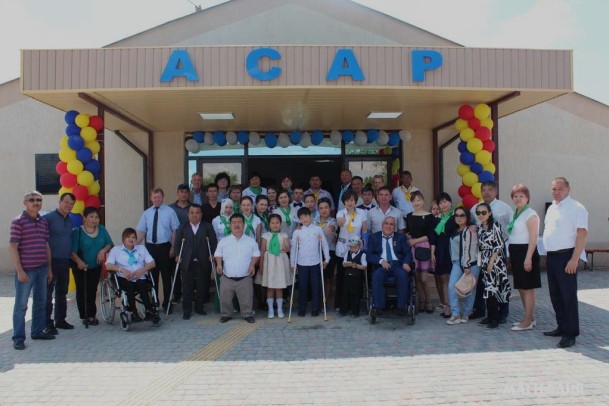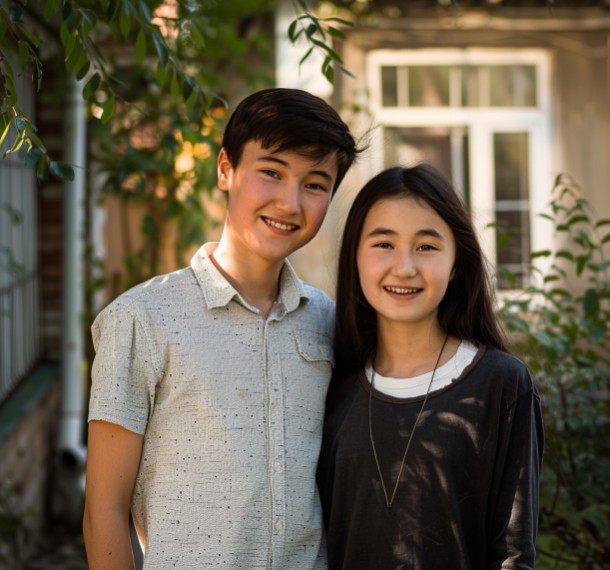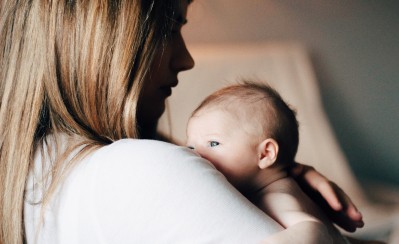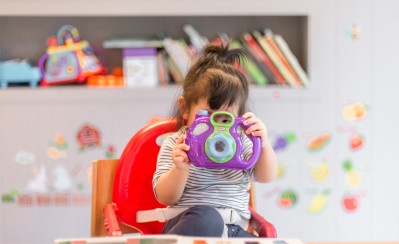Crisis Center ASAR
Step-by-step transformation of children’s villages, through the organization of a family and childhood support center aimed at preventing social orphanhood, returning children from foster families, supporting and accompanying children and families in difficult life situations, and providing special social services to foster families (adoption, guardianship, patronage, host family)
Almaty
Tasks
Providing mothers with children with the opportunity to live for 6 months until the difficult life situation (DLS) is resolved;
Ensuring the healthy development of the child in a family environment;
Creating access to basic services: medical, legal, psychological, educational, as well as providing support in the form of food and hygiene kits in individual cases;
Strengthening the capacity of mothers to provide proper care to their children;
Improving the psychological state of parents;
Creation of an active network of partners (government, public, business organizations) to ensure access to a comprehensive package of services for each family.

Target groups of the project:
A single-parent family with children from 1.5 to 10 years old who found themselves in a difficult life situation, such as:
- Risk of child removal
- Lack of housing
- Lack of a place of work and/or professional education
- Lack of documents
- Income below the subsistence minimum
- Loss of a breadwinner, family ties.
Accommodation and receiving services
Coverage for 6
months
6 families
12 children
Coverage for 12
months
6 families
12 children
Coverage for 18
months
6 families
12 children
Coverage for 6
months
18 families
36 children
Project implementation mechanism:
The project is implemented in close cooperation with government partners. The target group is directed by employment departments, education authorities (guardianship and trusteeship department), public organizations, and civil society.
Evaluation of the compliance of referred clients with the project target group
Assessment of needs and requirements of the CG (individual approach)
Signing the Agreement on the receipt of services
Case management
Exit of the accommodation service CC (max 6 months)
Family support for effective exit from the project (additional 6 months)
The project is implemented in close cooperation with government partners. The target group is directed by employment departments, education authorities (guardianship and trusteeship department), public organizations, and civil society.
The following activities are being implemented within the framework of the project:
• Short-term/crisis placement center for the target group. Placement will take place at the Children’s Village in Almaty. A house with 6 separate rooms, a separate bathroom, a shared kitchen and a recreation room will be provided for 6 families. The duration of temporary placement can range from several weeks to several months, but not more than 6 months. The main goal of short-term placement is to provide housing and support to a family in a situation that threatens the safety and well-being of the child and weakens the ability to manage the family. During this period, the family needs immediate support to maintain or restore the functioning of the family.
• Educational support is aimed at expanding children’s access to preschool (kindergarten), school and extracurricular activities. Typically, this type of support can range from helping families connect with educational institutions, paying for kindergarten or inclusion in the Balapan program, as well as referral to tutoring and additional classes for school-age children, which are provided in the village. Children are referred to these services free of charge for the family, and some of these services may be provided by volunteers.
• Medical support is aimed at preventing and improving the health of children and parents. If necessary, families can receive first aid kits, which include general first aid medications (not requiring a special prescription), thermometers and other means (e.g. bandages, etc.) that allow families to provide first aid to their children. Medical support is provided on the basis of consultations; if consultations with narrow specialists are needed, beneficiaries are referred to the city territorial polyclinic, to which the family will be temporarily attached.
• Social support is provided for children and parents in the form of individual social counseling and group activities. Social workers work with parents and advise on how to access state social services and empower children to defend their rights before the government and other authorized bodies. This involves developing participatory skills and training in children’s rights. In addition, parents are trained to develop skills to encourage and guide their children to participate in decision-making processes that affect their own lives, in their family, school, community and other levels of society.
• Psychological support is aimed at improving the psychological climate in the family, creating emotional stability in children and parents, and strengthening their abilities and resilience to cope with difficult life situations. This type of support is provided to children and parents in the form of individual and group counseling.
• Parental support is aimed at increasing the level of knowledge and practical skills to improve the quality of child care, meeting the needs for physical, emotional, intellectual, social and spiritual development of children. This type of support will usually be provided in groups as part of trainings to improve parenting skills. Parents will have the opportunity to share their experiences in raising children, listen to other participants, and expand their social networks by communicating with other participants.
• Establishment of a Mothers’ Club to empower women to take control of their lives and have a voice, enabling them to overcome inequalities in the family, work and society. Specific activities, which include providing information and raising awareness on women’s rights; legal information on gender-based violence and inheritance rights; women’s economic empowerment; and sexual and reproductive health, will be covered within the framework of the Mothers’ Club.
• Vocational training for parents. In partnership with government organizations, project staff will refer unemployed parents to courses for subsequent employment.
• Legal support is aimed at helping families protect and defend their legal rights and interests. This type of support includes referral to professional individual legal advisory services. In addition, families are assisted in collecting documents necessary to defend legal rights in courts and other authorities, documentation (identity card, birth / death / marriage / divorce certificate, etc.).
A special role in the implementation of the Project is given to building partnerships and cooperation. The project adheres to the concept of sharing knowledge, resources and expertise. For this purpose, the project establishes formal and informal partnerships with strategic partners who can provide additional services, so that beneficiaries will have access to a comprehensive package of services. Within the framework of partnership and inter-agency cooperation, the project can help create or participate in various forums, alliances, networks that help ensure the visibility of the project, exchange information and resources, effectively coordinate activities and avoid duplication of services. In addition, strengthening a strong and expanded network of organizations can have a beneficial effect on the well-being of children of the target group through advocacy activities, raising public awareness of children’s rights, including work on revising or developing legislation.





